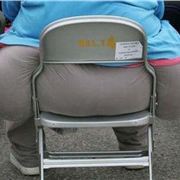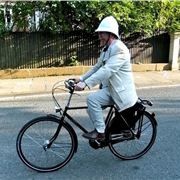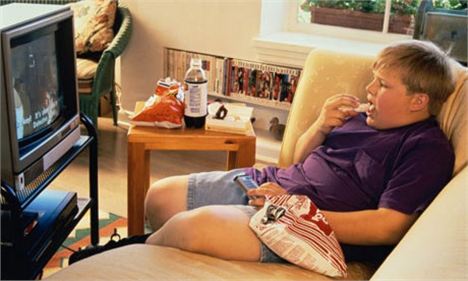MORE than a fifth of the population of Liverpool is obese and by 2020 that figure is set will swell to one third, according to new figures released by Liverpool Council.
The shocking findings of a report, being launched this week, show that
- Approximately 80,000 adults and 13,000 children are obese, with direct costs to Liverpool NHS of around £5million per year
- Only 21 per cent of adults are active enough to benefit their health
- Only 1-in-3 boys and 1-in-5 girls aged 9-11 are involved in physical activity for one hour a day
- If current trends continue, it’s predicted that by 2020 nearly one third of residents will be overweight
- Since 2005, smoking in the city has reduced from 35 to 27 per cent
Now, in bid to stop a ticking health time-bomb , the city and Liverpool Primary Care Trust are announcing an ambitious strategy to get every person in the city fit and healthy.
This Thursday, the Be Active: Be Healthy: Creating a Moving Culture blueprint will be unveiled at Wavertree Park Sports Centre. It will, says the council, outline the city’s commitment to promoting active lifestyles and aims to improve the health of everyone in the city, regardless of age or ability.

Assistant Cabinet Member for Health and Social Care, Councillor Helen Casstles, will attend Thursday’s launch along with Everton Football Club midfielder Steven Naismith, Paralympian David Devine who secured two bronze medals in the 800m and 1500m races at this year’s Games and Taekwondo Middleweight Champion of the World Jimmy McGinn.
The strategy, which runs from 2012 to 2017, aims to increase participation in physical activity by two per cent each year which will be measured throughout the process by the independent Active People Survey.
It will also set out how much exercise different age groups should undertake each week, outline some of the various organised exercise activities which take place regularly in the city and will also highlight affordable ways of keeping fit including the use of green spaces in the city.
Gideon Ben-Tovim, chairman of Liverpool PCT, said: “Being unhealthy and overweight can lead to so many conditions such as heart disease, strokes and even cancer, it’s essential we do as much as we can to promote a more active lifestyle.
“This document cements our commitment to improving the quality of life for residents and we hope that thousands more people will be inspired to get fit and have a healthy start to 2013.”
It also details the different activities available for all the age groups which include the Futures Programme which offers free access to Lifestyles Leisure Centres for young people up to the age of 17. This incorporates free swimming and payment of £1 per gym session. The number of young people joining the scheme has averaged around 1,000 per month with an increase of 57,000 visits to centres across the city.
Who does what?

The new report outlines how much exercise is recommended for various age groups:
Early years (0-4years) – From birth, floor based play and water-based activities should be adopted, and when a child can walk unaided they should be active for at least three hours spread out throughout each day.
Children and young people (5-18years) – This group should engage in moderate to vigorous activity (which includes running, ball games or gymnastics) for at least an hour each day which will improve bone health, muscle strength and flexibility.
Adults (19-64years) – It’s advised that adults should exercise for at least 150 minutes (2.5hours) a week. This should be exercise that increases the heart rate, including walking, cycling, football, gardening and even housework.
Older adults (65+) – Again, older adults are advised to be active for around 150 minutes a week, but focus on exercise which strengthens muscles at least twice a week, and those at risk of falls should focus on improving balance and co-ordination.












